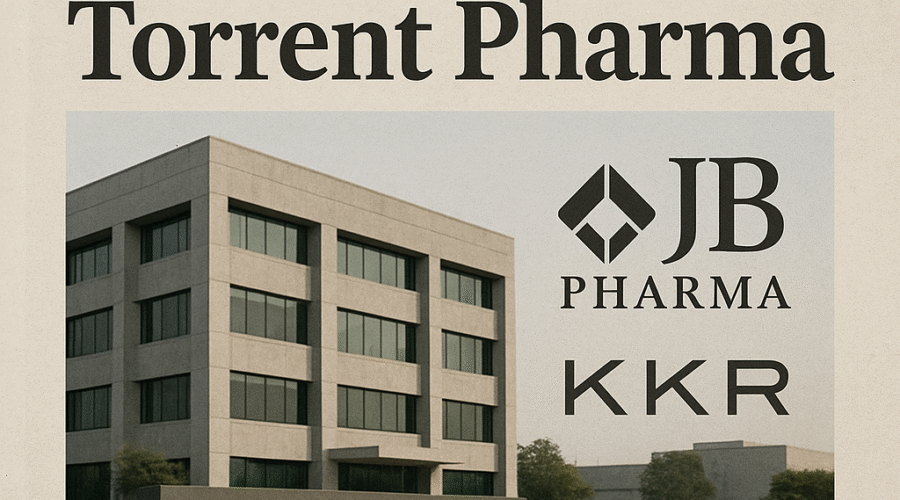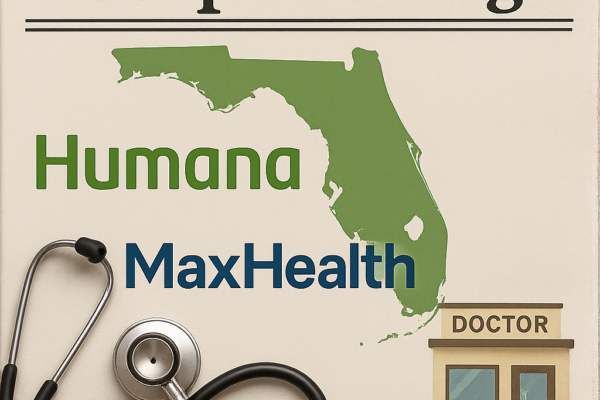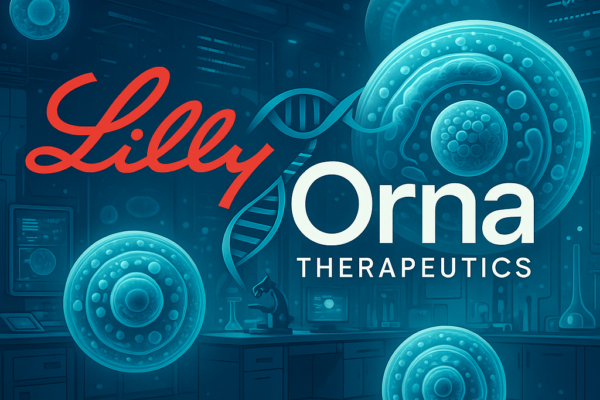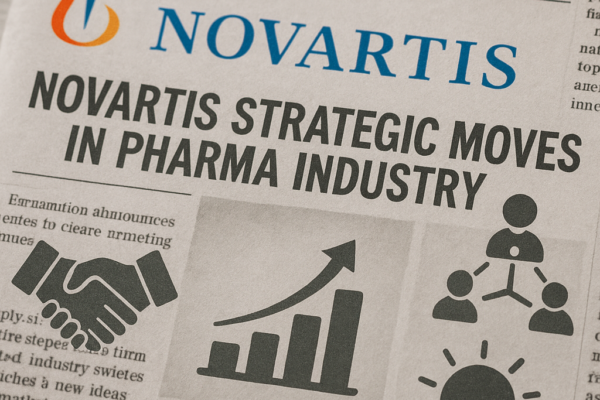In a landmark transaction reshaping India’s pharmaceutical landscape, Torrent Pharmaceuticals announced the acquisition of KKR’s 46.39% controlling stake in JB Chemicals & Pharmaceuticals for ₹11,917 crore ($1.4 billion), with the full equity valuation reaching ₹25,689 crore ($2.5 billion)[1][3][4][7]. This two-phase deal—comprising an immediate stake purchase followed by a mandatory open offer and eventual merger—positions Torrent to dominate chronic therapy markets while establishing India’s first integrated CDMO powerhouse capable of competing globally[2][4][7]. The transaction, requiring regulatory approvals from CCI and NCLT, represents the largest pharma M&A deal in India since 2023 and signals private equity’s strategic pivot toward specialized manufacturing platforms[1][4][6].
💼 Seasoned CorpDev / M&A / PE expertise
Deal Architecture and Financial Engineering
Staged Acquisition Framework
The transaction unfolds through meticulously structured phases designed to optimize control transfer while mitigating regulatory risk. In Phase 1, Torrent immediately acquires KKR’s 46.39% stake at ₹1,600 per share, deploying ₹11,917 crore in capital[1][3][7]. This triggers a mandatory open offer for 26% of public shares at ₹1,639.18 per share—a 2.4% premium to the KKR sale price—with Torrent simultaneously securing rights to purchase an additional 2.80% from employee shareholders[1][4][7]. Upon securing majority control, Phase 2 executes a statutory merger through a share-swap arrangement granting JB Pharma shareholders 51 Torrent shares for every 100 held, effectively consolidating operations under a single corporate entity[1][3][7]. This tiered approach enables Torrent to phase capital outlays while strategically navigating India’s takeover code requirements.
Valuation Metrics and Premium Analysis
The transaction implies a 26% premium to JB Pharma’s pre-announcement market price, valuing the target at 22x trailing EBITDA—a significant markup to the sector median of 18x[2][4]. This valuation reflects strategic scarcity premiums for JB Pharma’s CDMO capabilities, particularly its medicated lozenge manufacturing infrastructure serving U.S. and European markets[2][7]. The ₹25,689 crore enterprise valuation represents 5.2x JB Pharma’s FY24 revenue of ₹4,900 crore, exceeding recent comparable transactions like EQT’s acquisition of Indegene (4.8x revenue) and highlighting investor confidence in CDMO-driven growth[2][4]. Torrent’s financing combines internal accruals with ₹8,000 crore in debt facilities, increasing its leverage ratio to 1.8x EBITDA—within manageable thresholds for the investment-grade rated borrower[4][7].
Strategic Rationale and Synergy Realization
Therapeutic Portfolio Augmentation
Torrent gains immediate leadership in hypertension therapeutics through JB Pharma’s flagship brands like Cilacar and Metrogyl, which command 11% and 9% market shares respectively in their categories[4][7]. This complements Torrent’s dominance in neurology and oncology, while granting entry into ophthalmology—a ₹12,000 crore Indian market growing at 14% annually where JB Pharma holds top-three positions in key formulations[2][4]. The combined entity will control six of India’s top 300 pharmaceutical brands, creating the nation’s fourth-largest chronic therapy portfolio with estimated domestic revenue of ₹9,200 crore[1][4][7]. Portfolio diversification reduces Torrent’s reliance on single-therapy segments, insulating against domestic pricing pressures while creating cross-selling opportunities across 400,000 physician relationships[2][7].
CDMO Platform Transformation
JB Pharma’s contract development capabilities—particularly its eight WHO-GMP certified facilities including dedicated lozenge manufacturing lines—become the transaction’s crown jewel[2][7]. This infrastructure positions Torrent to capture the global CDMO market projected to reach $145 billion by 2027, with specialized capabilities in medicated lozenges serving unmet demand from Western pharmaceutical companies[2][4]. Integration creates immediate revenue synergies through Torrent’s existing relationships with U.S. generics manufacturers, while JB Pharma’s established supply chains across 40 countries accelerate international expansion[2][7]. The combined CDMO division targets $800 million revenue by 2027 through capacity optimization and technology transfer from Torrent’s R&D pipeline[2][4].
Operational Integration Levers
Merger synergies target ₹1,200 crore in annual cost savings by FY27 through manufacturing consolidation, supply chain optimization, and administrative rationalization[2][4]. Torrent will rationalize JB Pharma’s API procurement through its existing vendor networks, reducing raw material costs by 9-12%[2]. Distribution synergies emerge from combining Torrent’s 32 CFAs (carrying and forwarding agents) with JB Pharma’s 28 regional hubs, eliminating 15% of overlapping infrastructure[4][7]. The merger creates India’s third-largest field force with 8,500 medical representatives, enabling deeper penetration in tier-3/4 markets while reducing per-unit promotion costs by 18%[2][4]. These operational improvements are projected to lift combined EBITDA margins from 24% to 28% within three years.
Market Implications and Competitive Dynamics
Consolidation Wave Acceleration
This transaction catalyzes further M&A activity across India’s fragmented $50 billion pharmaceutical market, where the top 10 players control just 35% of formulations[4][7]. Mid-sized firms like Alkem Laboratories and Lupin now face strategic imperatives to either acquire niche capabilities or risk marginalization, particularly in specialized manufacturing segments[2][4]. Private equity exits will accelerate as firms like Carlyle (SeQuent Scientific) and BPEA EQT (Indegene) seek liquidity events following KKR’s successful 2.7x return on its JB Pharma investment[1][7]. The deal establishes CDMO capabilities as premium valuation drivers, likely triggering competitive bids for comparable assets like Laurus Labs’ formulation facilities or Syngene’s development infrastructure[2][4].
Global Competitiveness Blueprint
The integrated entity emerges as India’s first pharmaceutical champion with balanced domestic chronic portfolio and international CDMO capabilities—a structure mirroring global peers like Lonza and Catalent[2][7]. Torrent gains immediate access to JB Pharma’s 40-country export network, including established regulatory footholds in Russia and South Africa where JB Pharma holds top-five positions in key therapeutic categories[2][4]. This international footprint diversifies revenue streams away from India’s price-controlled market, reducing regulatory vulnerability while creating pathways for biosimilar expansion through CDMO capabilities[2][7]. The combined entity targets 35% international revenue contribution by 2027, up from Torrent’s standalone 22%.
Execution Risks and Mitigation Framework
Regulatory Pathway Analysis
The transaction faces multi-layered regulatory scrutiny requiring approvals from CCI, NCLT, and SEBI—a process estimated at 9-12 months given deal complexity[4][7]. Antitrust concerns appear manageable as the combined entity would hold under 7% of the Indian pharmaceutical market, below the 10% threshold triggering intensive CCI review[4]. More significant are NCLT requirements for creditor approvals and shareholder voting, where Torrent has structured the merger consideration as stock-heavy to maintain target company cooperation[1][3]. The open offer process presents execution risk with 26% of shares subject to public tender—failure to secure 90% acceptance could delay merger completion[1][4].
Integration Challenge Mapping
Cultural integration poses material risk as Torrent’s conservative Gujarat-based management integrates JB Pharma’s Mumbai-centric entrepreneurial culture[4][7]. Historical precedents like Sun Pharma-Ranbaxy highlight dangers of integration missteps, where cultural clashes eroded $800 million in projected synergies[2]. Torrent mitigates this through retention bonuses for JB Pharma’s senior leadership and cross-functional integration teams reporting directly to Samir Mehta[4][7]. Manufacturing consolidation requires careful harmonization of quality systems across 23 facilities, with Torrent adopting a phased approach beginning with non-sterile formulations[2][4]. The companies have established a 100-day integration roadmap prioritizing IT system unification and sales force realignment before operational changes.
Leadership Vision and Strategic Alignment
Torrent’s Growth Architecture
Executive Chairman Samir Mehta positions the acquisition as Torrent’s transformational leap from domestic chronic player to global diversified healthcare platform[1][7]. The CDMO division becomes Torrent’s primary growth vector targeting 22% CAGR through 2030, leveraging combined capabilities to serve multinational clients seeking China-plus-one manufacturing diversification[2][4]. Mehta emphasizes “profitability over scale” in guiding integration, prioritizing margin expansion through operational efficiencies before pursuing international acquisitions[1][7]. The transaction aligns with Torrent’s historical strategy of debt-funded consolidation, echoing its 2014 acquisition of Elder Pharmaceuticals which delivered 19% IRR over five years[4].
KKR’s Value Creation Blueprint
Gaurav Trehan, KKR’s Asia Pacific co-head, highlights the investment as
Sources





